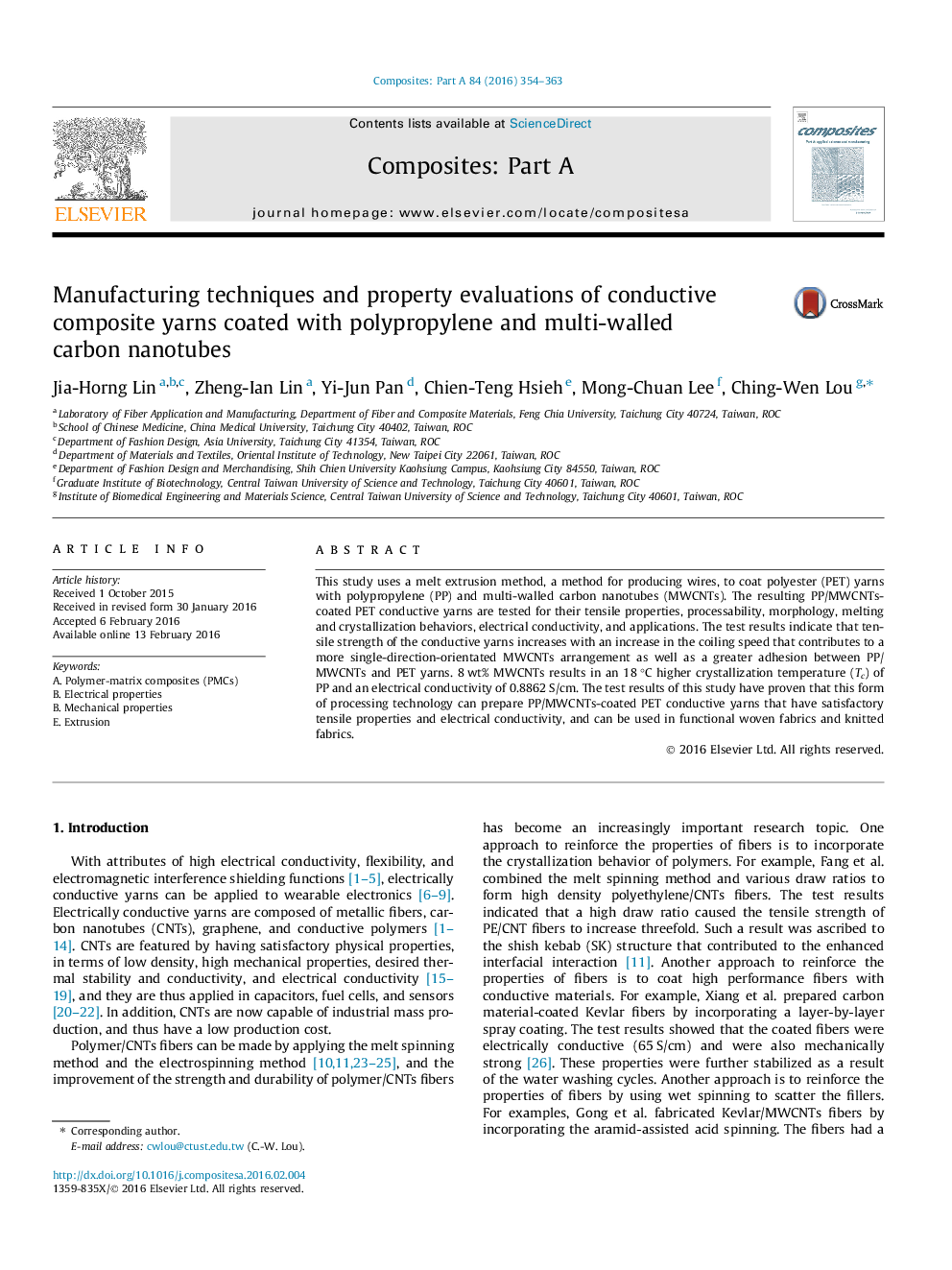| Article ID | Journal | Published Year | Pages | File Type |
|---|---|---|---|---|
| 7891152 | Composites Part A: Applied Science and Manufacturing | 2016 | 10 Pages |
Abstract
This study uses a melt extrusion method, a method for producing wires, to coat polyester (PET) yarns with polypropylene (PP) and multi-walled carbon nanotubes (MWCNTs). The resulting PP/MWCNTs-coated PET conductive yarns are tested for their tensile properties, processability, morphology, melting and crystallization behaviors, electrical conductivity, and applications. The test results indicate that tensile strength of the conductive yarns increases with an increase in the coiling speed that contributes to a more single-direction-orientated MWCNTs arrangement as well as a greater adhesion between PP/MWCNTs and PET yarns. 8 wt% MWCNTs results in an 18 °C higher crystallization temperature (Tc) of PP and an electrical conductivity of 0.8862 S/cm. The test results of this study have proven that this form of processing technology can prepare PP/MWCNTs-coated PET conductive yarns that have satisfactory tensile properties and electrical conductivity, and can be used in functional woven fabrics and knitted fabrics.
Keywords
Related Topics
Physical Sciences and Engineering
Materials Science
Ceramics and Composites
Authors
Jia-Horng Lin, Zheng-Ian Lin, Yi-Jun Pan, Chien-Teng Hsieh, Mong-Chuan Lee, Ching-Wen Lou,
